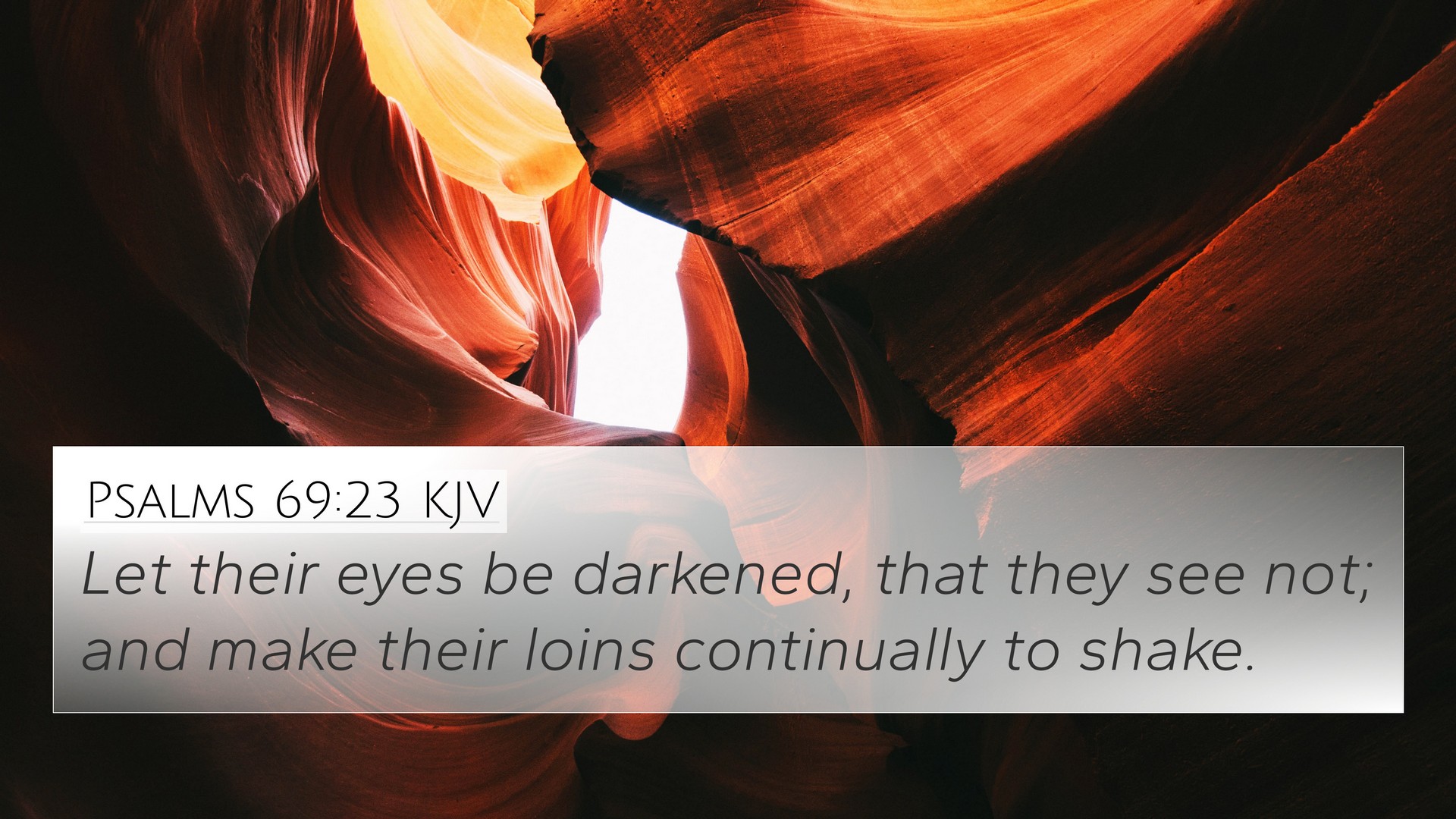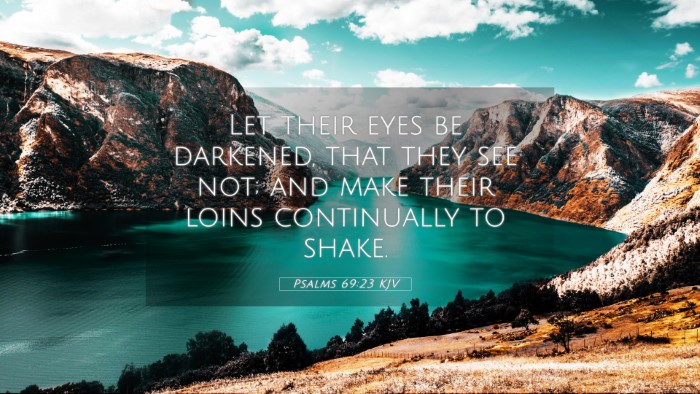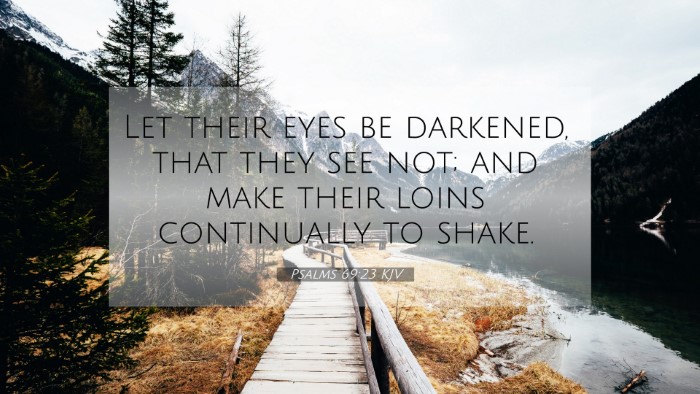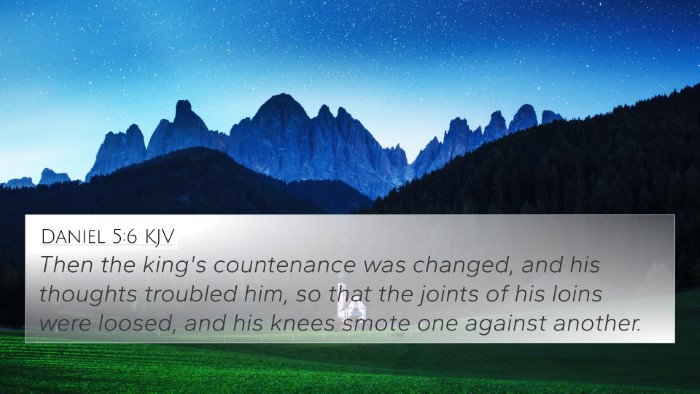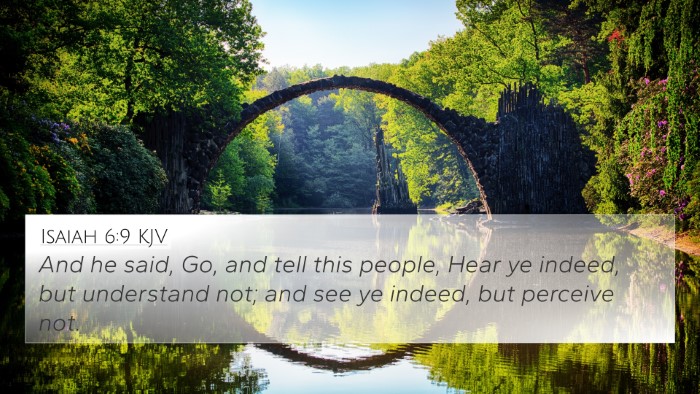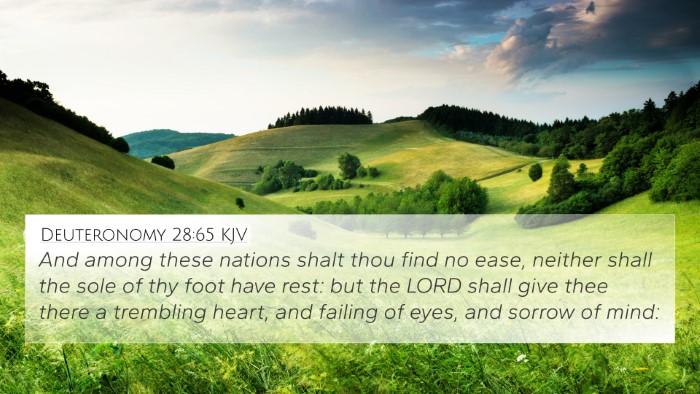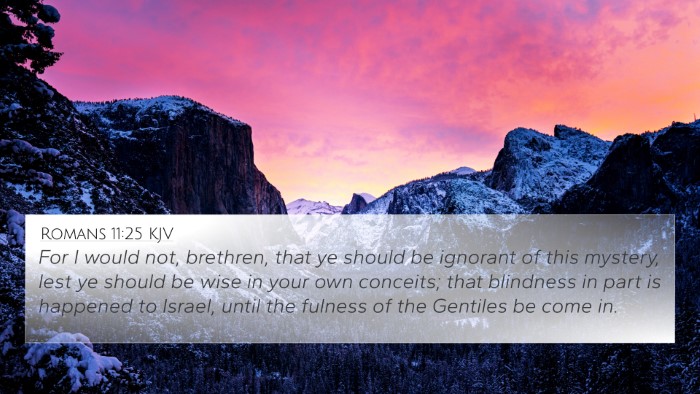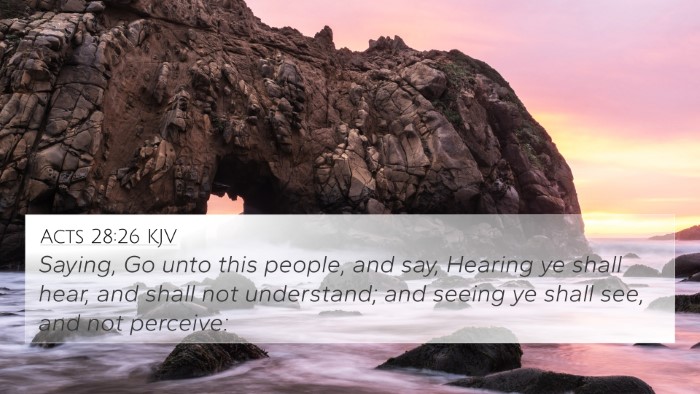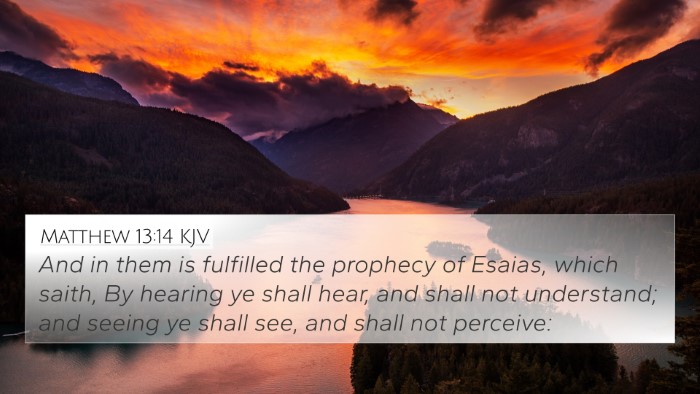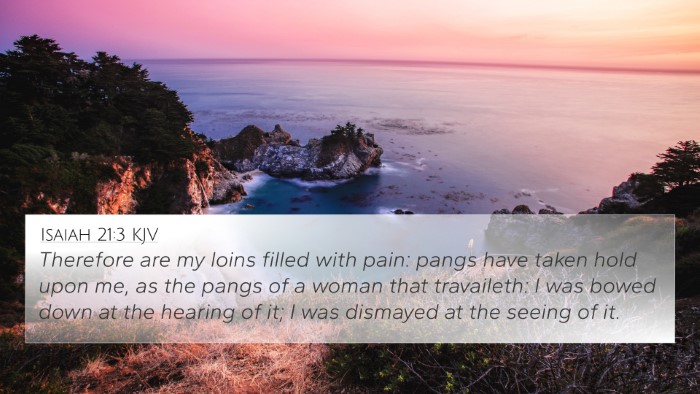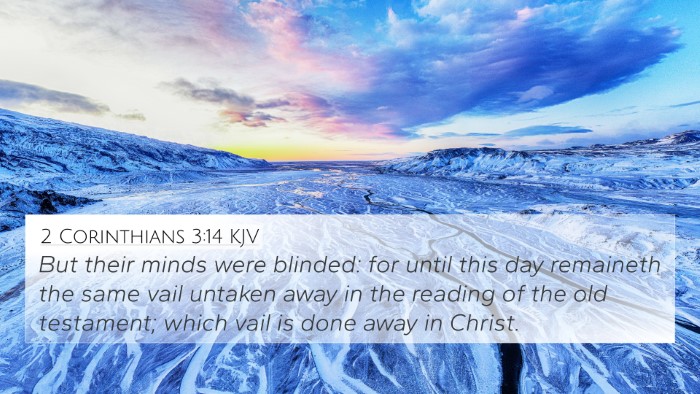Understanding Psalm 69:23
Psalm 69:23 states, "Let their eyes be darkened, that they see not; and make their loins continually to shake." This verse is one of the imprecatory psalms where the psalmist calls for God's judgment on his enemies. Such appeals to divine justice are not uncommon in the psalms, reflecting a deep-seated desire for vindication and righteousness.
Commentary Insights
The combination of insights from public domain commentaries provides a richer understanding of this verse:
-
Matthew Henry: Emphasizes the psalmist's plea for divine intervention against those who unjustly oppose him. The request for their eyes to be darkened symbolizes a desire for their inability to perceive their wrongdoing and their vulnerability to God's judgment. This is seen as an appeal for a dramatic reversal of fortune.
-
Albert Barnes: Notes that the phrase "let their eyes be darkened" reflects a desire for blindness in the spiritual and moral sense, indicating a total inability to discern truth or righteousness. This can be interpreted as a metaphor for the moral degradation that blinds individuals to their own faults.
-
Adam Clarke: Suggests that the psalmist's call for disorientation ("make their loins continually to shake") points to the fear and instability that the enemies of the psalmist should experience. This shaking may also allude to the loss of strength and courage in the face of divine judgment.
Key Themes and Reflections
This verse touches upon several theological themes:
- The Righteousness of God: It demonstrates a longing for justice and for God's righteousness to prevail.
- Suffering and Vindication: This reflects the suffering of the innocent and the desire for vindication against injustice.
- Divine Judgment: It highlights the concept of divine retribution, where God intervenes in human affairs to impose justice.
Bible Verse Cross-References
Psalm 69:23 can be cross-referenced with the following scriptures to explore connections between Bible verses:
- Romans 11:10: "Let their eyes be darkened, that they may not see, and bow down their back always." This verse echoes the theme of spiritual blindness and divine judgment.
- Psalm 35:4: "Let those be put to shame and brought to dishonor who seek after my life." Similar imprecatory appeals for justice are made.
- Psalm 109:15: "Let them be before the Lord continually, that he may cut off the memory of them from the earth." A call for divine retribution is emphasized.
- Isaiah 6:10: "Make the heart of this people fat, and make their ears heavy, and shut their eyes." This indicates divine blinding of hearts to protect the righteous.
- Proverbs 30:17: "The eye that mocks a father and scorns to obey a mother will be picked out by the ravens of the valley and eaten by the vultures." This passage warns of the consequences of disdainful actions.
- Lamentations 3:63: "Consider my enemies, and all their thoughts against me." This reflects a similar cry for acknowledgment of one’s plight against adversaries.
- Micah 7:10: "Then she who is my enemy will see, and shame will cover her who said to me, 'Where is the Lord your God?'" This highlights eventual vindication over enemies.
- Matthew 23:16: "Woe to you, blind guides, who say, 'If anyone swears by the temple, it is nothing, but if anyone swears by the gold of the temple, he is bound by his oath!'" A New Testament call-out of spiritual blindness.
- 2 Thessalonians 1:6: "Since indeed God considers it just to repay with affliction those who afflict you." This is a New Testament affirmation of God's justice against oppressors.
- Revelation 6:10: "O Sovereign Lord, holy and true, how long before you will judge and avenge our blood on those who dwell on the earth?" This reflects a future hope for divine vindication against injustice.
Thematic Bible Verse Connections
The imprecatory nature of Psalm 69:23 connects it to various themes within Scripture, illustrating the ongoing dialogue between human suffering and God's just response. Such cross-referencing enriches our understanding and enhances our study of Scripture:
Tools for Bible Cross-Referencing
To dive deeper into the connections between Bible verses, various tools can assist:
- Bible Concordance: Essential for finding specific words and their occurrences throughout the Bible.
- Bible Cross-Reference Guide: A resource providing direct verse connections and thematic linkages.
- Cross-Reference Bible Study: Methods incorporating various verses to examine themes and teachings.
- How to Use Bible Cross-References: Learning how to effectively engage with the interconnectedness of Scripture.
- Bible Reference Resources: Including analytical tools and commentary collections for deeper insights.
- Comprehensive Bible Cross-Reference Materials: Extensive works that compile numerous cross-references for thorough studies.
Conclusion
Psalm 69:23 captures a moment of deep emotional and spiritual conflict where the psalmist seeks divine justice and clarity amidst adversity. Through careful cross-referencing of biblical texts, one can draw parallels that enhance the understanding of God's nature and the human condition which resonate throughout Scripture. Those engaged in biblical studies can find rich resources and methodologies to explore these connections comprehensively.
